Chapter 7:Succesful Experiment?
Year 9 sees us introduced to one of Keyarash' main sources of news from home, his old mentor Pishdad.

Pishdad was the man who repaired the relationship with the Saka tribes, he was unfortunately unable to renew the alliance due to the Saka being at war with Baktria.
We are also introduced to the son of Harasp, Darman,

and it quickly becomes obvious that, despite his youth, Darman is ruthless and capable. The City of Alexandreia-Ariane accepts a bribe from the Seleukids and rebels,
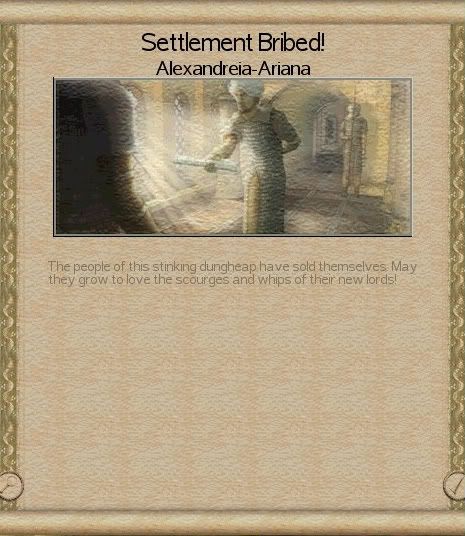
before the Greeks had time to install a garrison Darman rode into the city and butchered the elder council. The townspeople came before him and begged for mercy, none was forthcoming. Almost 75% of the population was enslaved or killed, the speed of Darmans reaction shows he had no thoughts of waiting for instructions from the king. With a purpose reminiscint of his father he showed what happens to those who defy Parthian authority.
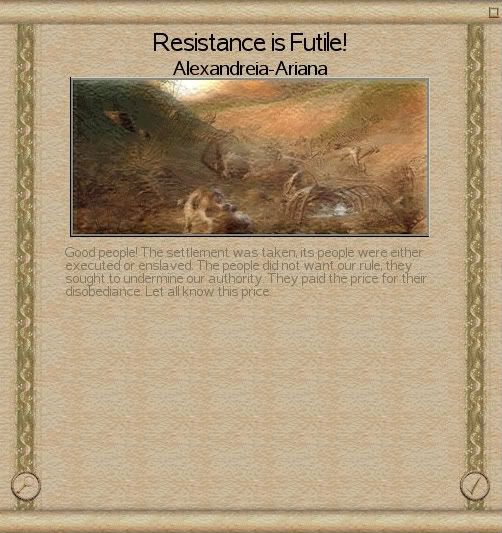
Keyarash believed Darman was destined to become as great a warrior as his father, and he tells us many in the Empire also thought so.
Year 8 also gives us our second detailed report of battle, again from a letter from an old friend of Keyarash. This time, though, the Parthians have a new, experimental army, mainly composed of mercenaries.
Extract:
"We had some Greek Peltasts, heavily armoured, who would throw their missiles then withdraw behind the spearmen, local Persian archer-spearmen, who excelled at neither and Babylonian spearmen, who we hoped would be the match of the Greeks. We also had a unit of horsemen from India,and some local archers."

"For once we weren't hugely outnumbered by the enemy."
"We lined up with the peltasts in front,the spearmen in a line and the archers behind. It wasn't exactly a move of tactical genius but the King was new to such an army and keeping it simple was the best thing to do"
"It was strange to see the army move forward to meet the enemy, both armies going forward with little attempt to flank. The royal horsemen concentrated their fire on the enemy archers, who were lightly armoured, and routed them with a charge when they were decimated by the missile fire. Our spearmen were having a rough time of it until the cavalry returned, routed the enemy cavalry and then charged the rear of the enemy spear. It was strange to see such a mass of men together, there was something barbaric about the chaotic melee."
"The victory was won and we lost far fewer men than the enemy, but it was still a staggering loss of life compared to what we were used to. Of course they were only mercenaries, paid to die, but we didn't have the manpower of the Seleukids and could ill afford to lose too many men. Arshak the younger was very unhappy after the battle, he had an ill-tempered argument with his father feeling the experiment was a failure. His father said that while we had lost many men the enemy, who were used to fighting that way, lost many more. We needed time to adapt to new ways and would learn. The Prince felt we didn't have time to learn, more Seleukid armies were on our borders, the old ways had won us our freedom-why abandon them in our hour of glory?"








 Reply With Quote
Reply With Quote




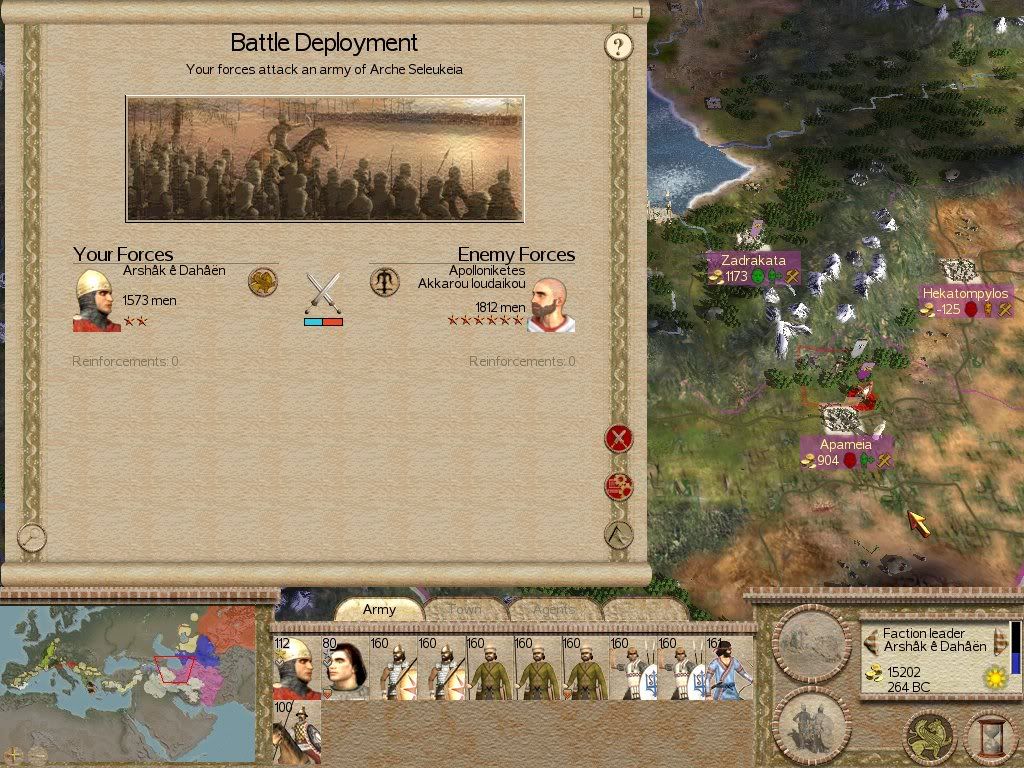

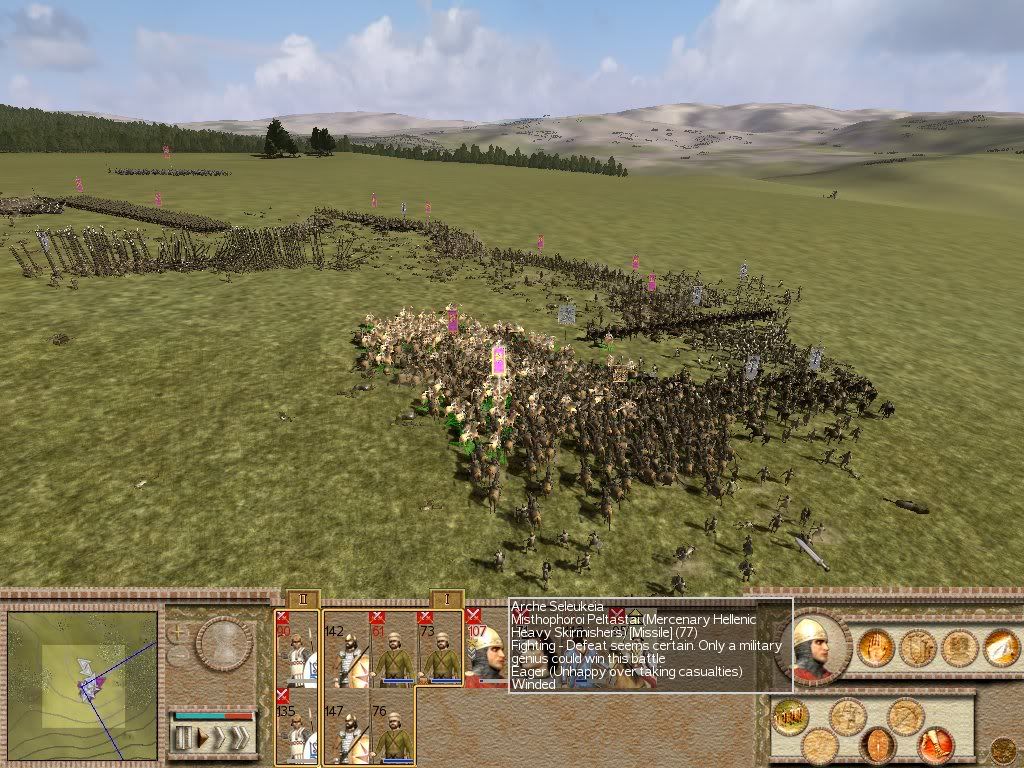
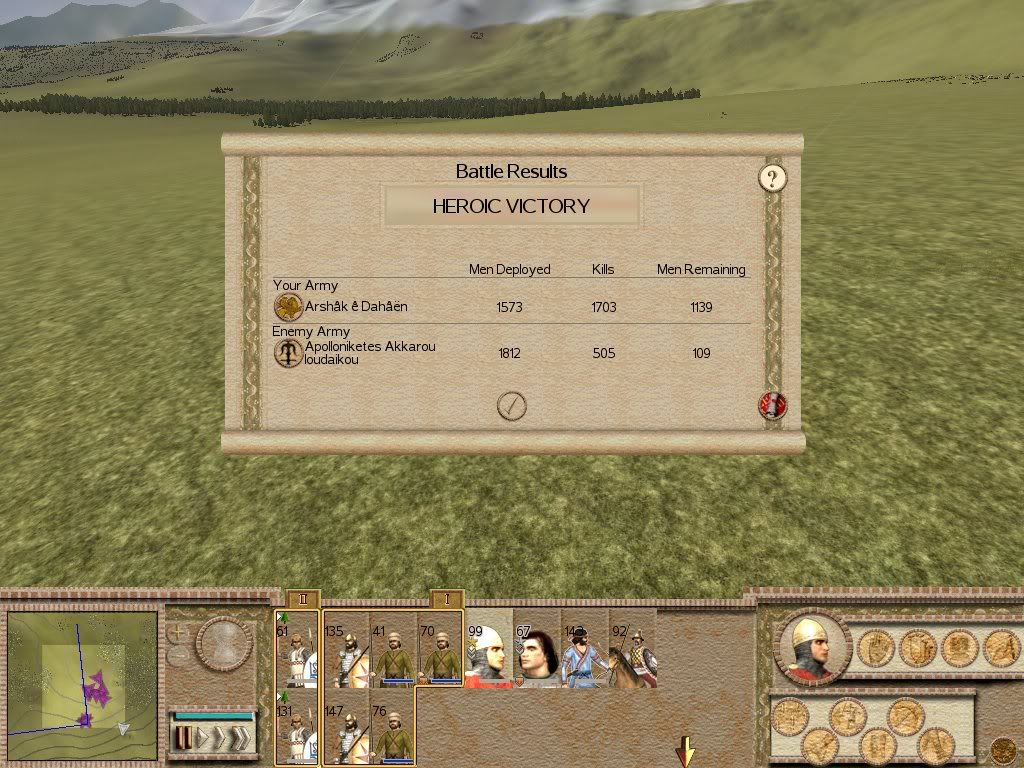


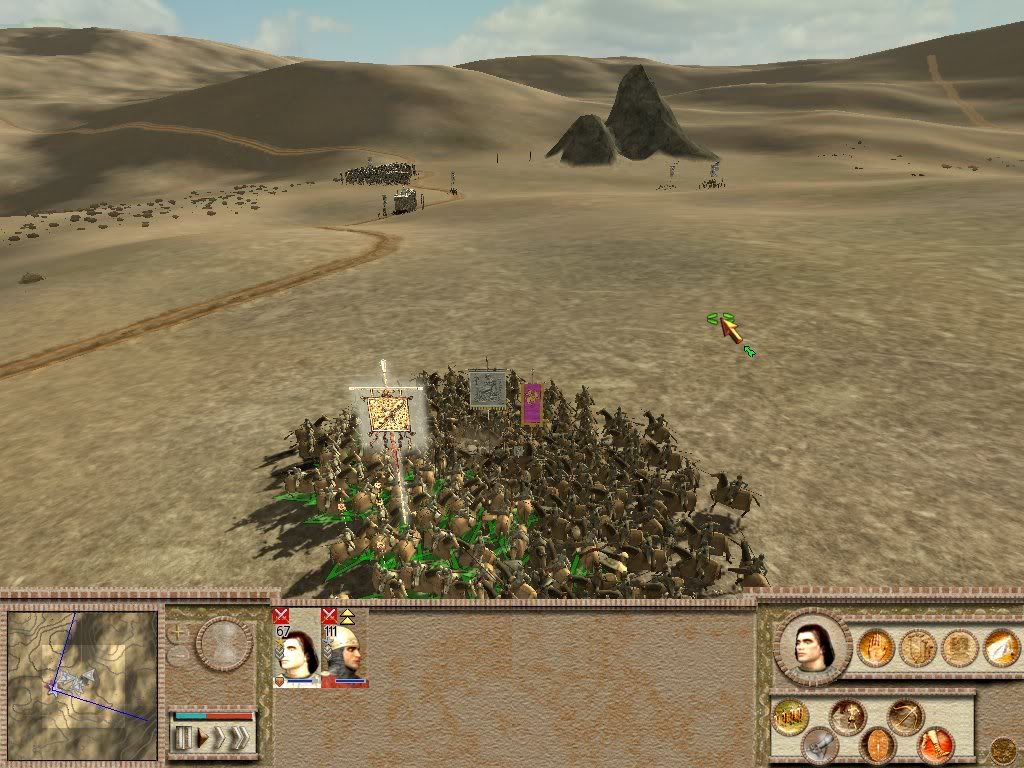
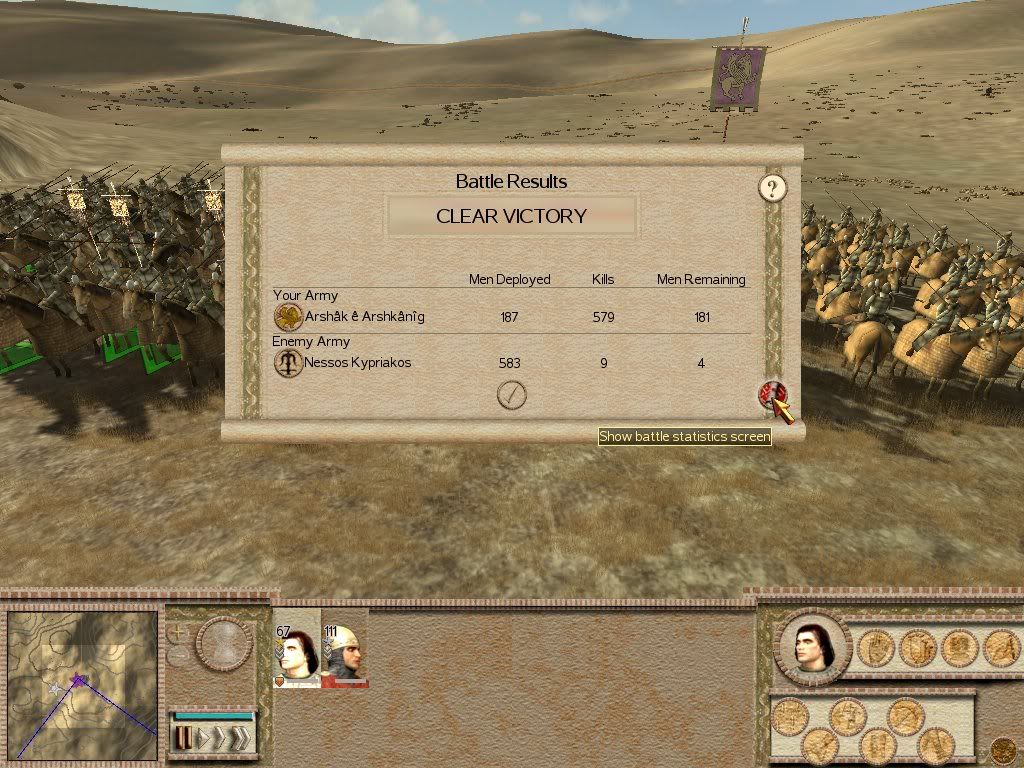
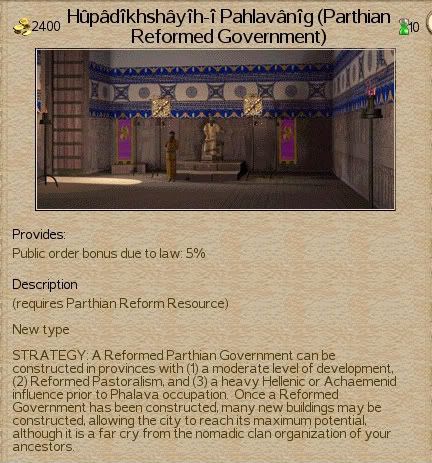

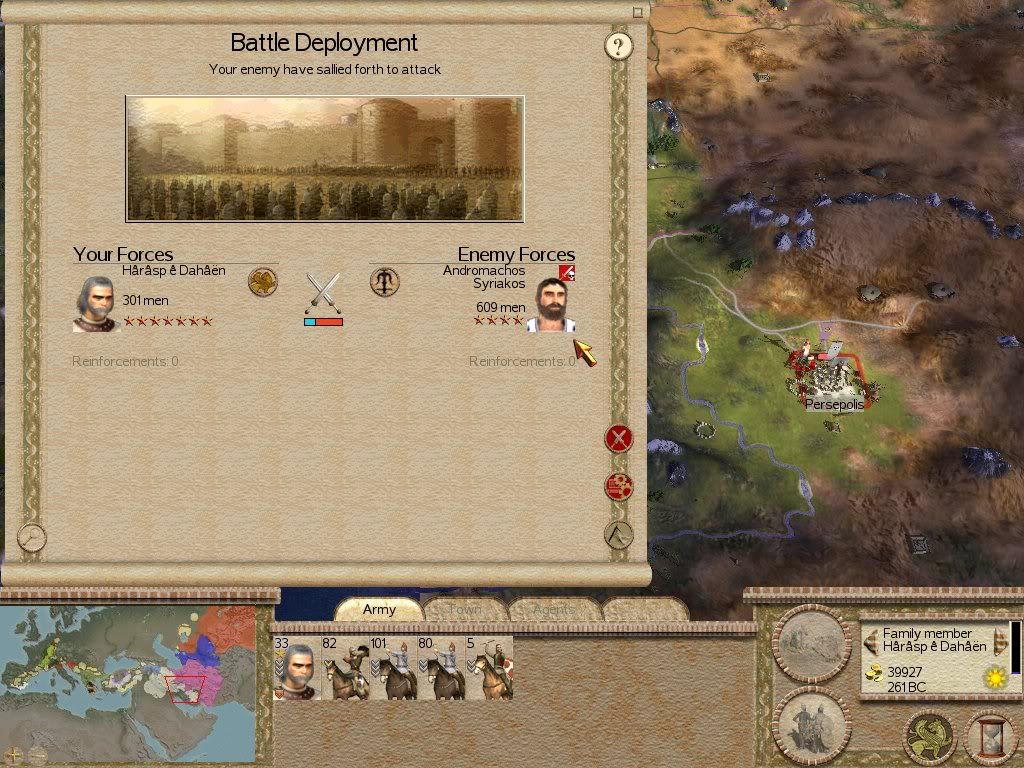
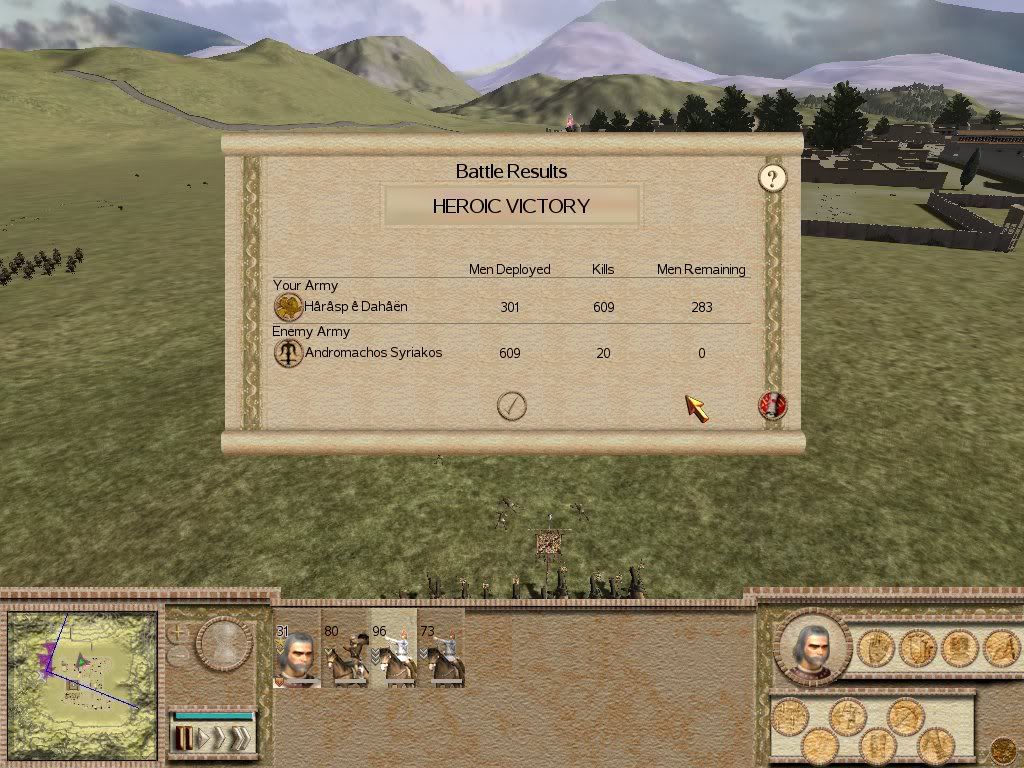
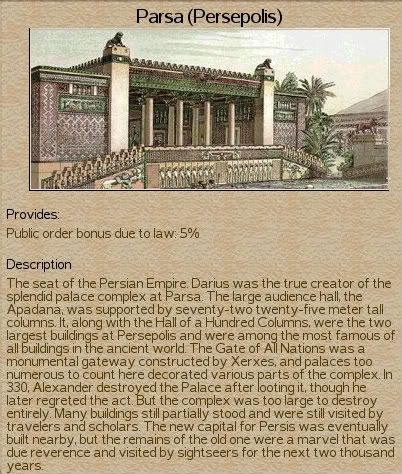
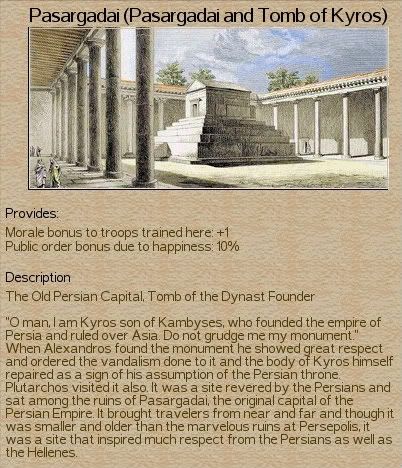

Bookmarks